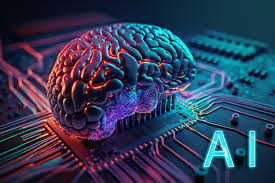80% of engineers may face job loss by 2027 if they do not enhance their skills: Report

80% of engineers may face job loss by 2027 if they do not enhance their skills: Report
A recent study has gathered essential and forward-looking insights regarding employment trends. The survey specifically emphasizes the necessity for software engineers to enhance their skills by 2027 to avoid potential job loss.
We are living in a rapidly changing and highly competitive environment, which affects job opportunities, education, and nearly every facet of our daily lives.
This trend is underscored by a recent study conducted by Gartner, a prominent technology research firm based in the United States, which predicts significant changes as technology advances. By 2027, it is expected that 80% of software engineers will need to upgrade their skills to remain relevant in an increasingly AI-driven landscape.
This forward-looking forecast merits serious consideration. The analysis provides insights into the future landscape for all technology professionals. In essence, tech graduates must navigate a continuously evolving environment that requires ongoing skill enhancement.
The integration of AI into software engineering is not merely a passing trend; it signifies a profound shift that will redefine the role of developers in the coming years. Research from Gartner suggests that this transformation is not about AI replacing software engineers, but rather about augmenting their skill sets. As AI systems take over routine coding tasks, the emphasis will shift towards engineers who possess a unique blend of expertise in software development, data science, and machine learning (ML).
AI tools are anticipated to significantly contribute to the automation of routine tasks, allowing developers to focus on the more complex and creative aspects of software development. In the near future, senior engineers are expected to benefit the most from this shift, as AI enhances their productivity by optimizing their workflows.
It is essential for developers to adopt an ‘AI-first’ mindset, emphasizing the guidance of AI agents and employing natural-language prompt engineering techniques to maximize the advantages of AI. Traditional skills associated with software development—such as coding, debugging, and design—are becoming inadequate. To thrive in the future job market, engineers need to expand their skill sets to include competencies related to artificial intelligence.
Ultimately, this transformation driven by AI will not reduce the demand for human engineers, as some may fear. Rather, it will create a new category of professionals, commonly known as ‘AI engineers.’
AI engineers will be vital in the design and large-scale deployment of AI solutions. To support this, organizations should invest in AI development platforms that facilitate the integration of AI into their enterprise applications.
For both current and aspiring software engineers, including those studying in BTech programs in India, the changing AI landscape presents both challenges and opportunities.
Organizations are increasingly recognizing AI and machine learning expertise as the most sought-after skill set for 2024, with more than 56% of technology leaders marking it as their primary hiring focus. This gap highlights the necessity for engineers to evolve alongside AI innovations. By 2027, it is projected that 80% of software engineers will need to enhance their skills to remain competitive in the workforce, as AI becomes a critical element of software development.
“While AI will transform the future role of software engineers, human expertise and creativity will always be essential to delivering complex, innovative software,” says Philip Walsh, Gartner.












